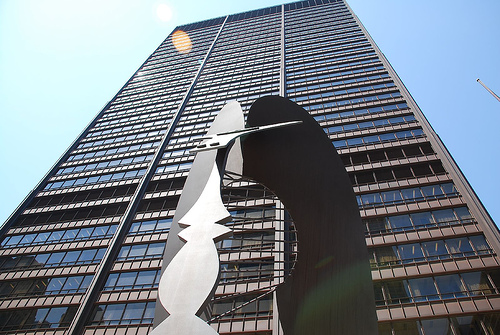 I believe that Adobe Acrobat is one of the most under used programs that attorneys have. Many, if not most, attorneys have a copy of it on their computer. Yet, almost all of them use it for only two purposes: creating a PDF and reading a PDF that someone else sent them. Acrobat is much more powerful than that, however. I have written before about some of my favorite Acrobat tools. You can also find several other posts relating to Acrobat by clicking the Acrobat category in the sidebar.
I believe that Adobe Acrobat is one of the most under used programs that attorneys have. Many, if not most, attorneys have a copy of it on their computer. Yet, almost all of them use it for only two purposes: creating a PDF and reading a PDF that someone else sent them. Acrobat is much more powerful than that, however. I have written before about some of my favorite Acrobat tools. You can also find several other posts relating to Acrobat by clicking the Acrobat category in the sidebar.
Today I want to point you toward a post from Ernie the Attorney on his PDF for Lawyers Blog. In the post, Ernie explains that he does not use paper in his depositions and that, instead, he refers to his electronic copies of the documents. He explains:
I have my deposition notes set up in an outline on my computer. When I get to a place that calls for me to talk about a certain document I inform my opposing counsel what the document bates-number is, and ask him to show it to the witness. I have all the documents bookmarked in Acrobat. It takes me about 3 seconds to get to the document, and I make good use of the time it takes my opponent to pull the document and show it to the witness. I have notes superimposed on the PDF and I examine those and get ready to frame my questions. At the end of the deposition I don’t offer any documents as exhibits. If opposing counsel asks me why I’m not doing that I tell him that the bates-numbers (which I announced on the record before starting my questions about each document) constitute sufficient reference.
If I’m attending a deposition it’s even easier. When a document is offered I ask what the bates-number is and I just pull it up, much more quickly than if I were to wait for it to be handed over. Plus I have my PDF notes superimposed on my copy which helps me quickly figure out the relevance of the document to my theory of the case.  And of course I can add more notes on the fly if I want to. I also bookmark the document and indent it under a main bookmark labelled for the deposition in question. So when the deposition is over I have a listing of all the documents that were referenced in that meeting.
I think that this is a great way to use Acrobat. Not only does it allow you to access your documents easily and quickly. Additionally, and perhaps most importantly, it also keeps all of your notes with respect to a particular document in one location. As an added benefit, all of those notes are fully searchable.
Although I have not entirely abandoned paper at my depositions, I do use Acrobat to keep notes on my documents and to organize them. I have found that the PDF Package available in Acrobat 8 is a great way to package all of my deposition exhibits together in a single location.
If you are are using Acrobat only to read or create PDFs, I urge you to start exploring the other options that are available to you.
 post from Inter-Alia, which compares the two. It looks like there are some significant differences between the two. For example,
post from Inter-Alia, which compares the two. It looks like there are some significant differences between the two. For example,



 Reid offers some great advice about how to stay connected to the office, while making sure not to cut into family and vacation time.
Reid offers some great advice about how to stay connected to the office, while making sure not to cut into family and vacation time.